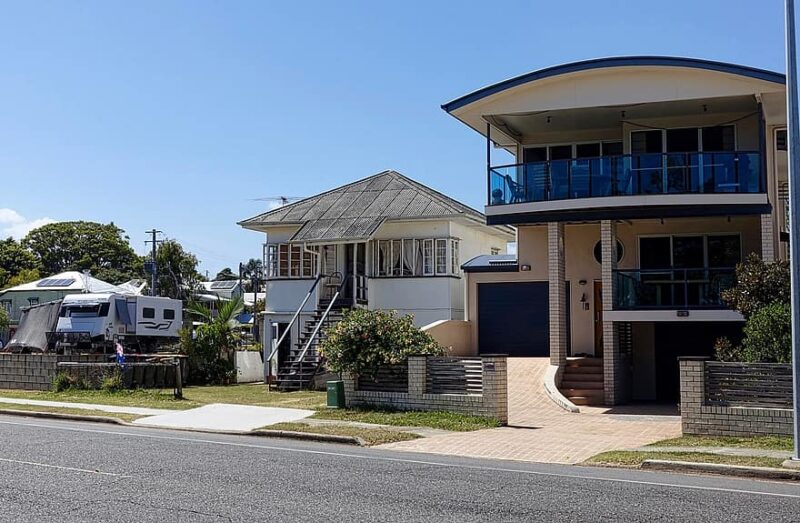Disclosure: This post may contain affiliate links, meaning we get a commission if you decide to make a purchase through our links, at no cost to you. Please read our disclosure for more info.
Whether it’s your first time away from home, or your first step out of the dorms, renting your first apartment is probably as daunting as it is exciting. That’s normal, since it’s such a big move. With your own pad comes independence and autonomy; you’re going to be free to make your own choices about your space and how you use it. Of course, before any of that, you need to find the right apartment.
Pete Evering of Utopia Management warns first-time renters not to jump in head first. “Many young renters make a few classic mistakes when renting their first apartment, but if you know a little bit before starting the process, it’s a lot easier to find something that’s not only affordable, but comfortable and convenient.”
If you’re a first-time renter, these tips should help you get out on the right foot, so that, hopefully, you don’t find yourself in over your head, uncomfortable, and unhappy.
Budget
Before you even start looking for a place, establish your budget. That’s more than a suggestion — it’s basically a rule. Before even opening up Craigslist, Facebook Marketplace, Point2, Zillow, or any other apartment-shopping aid, make clear note of your rent budget, because if you don’t, you’ll start to unconsciously adjust that budget as you shop, in order to accommodate attractive listings that you probably can’t afford.
It’s easy to say, “I’ll worry about it later” when it comes to your housing budget, the idea being that a better apartment will inspire you to work harder and earn more, allowing you to support a more expensive lifestyle. Put that idea in the trash. Your budget should be concretely derived from what you earn now, including whatever assistance you can realistically expect from family, student loans, or other sources, and when you’re searching for apartments, you shouldn’t be satisfied with their cost unless they allow a substantial margin in your budget. While it may not sound reasonable that you should be earning three times the cost of your rent each month, there’s a reason this is considered ideal.
Expectations
Your first apartment, unless you are extremely fortunate or already a high earner, is probably not going to be great. However, not great doesn’t necessarily mean downright awful. When it comes to finding a place to live, you need to have a good handle on what your money gets you in the market where you’re shopping, and what the value of an apartment is relative to others in that market. If you’re moving to a new city, you may be shocked to see what the typical quality of a rental in your price range is, for better or worse. And if it’s for worse, you might have to eat it.
You should temper your expectations, because if you don’t, you may be tempted to go over budget, or you might accidentally ignore some true gems in the rough — apartments that need little more than your own spin to become cozy refuges from the world, and the envy of your friends. No living space is perfect. Even the billionaire owners of condos in Manhattan’s 432 Park Avenue tower aren’t totally happy. In most cases, an apartment that doesn’t immediately excite you can be worked into one that does.
Needs vs. Wants
It’s fine to be choosy. Before going apartment hunting, you should have a good idea of your minimum requirements. Proximity to your place of work or education, access to onsite laundry facilities, and convenient parking are all very important, and some would consider them to be universal minimum requirements. A properly secured building is always important, and when it comes to expenses, you’ll find many landlords include utilities and electricity in the cost of rent, which can be advantageous.
But do you need a pool, or a gym, especially if these amenities might be subpar in reality and will barely be used? Is a listing with free wifi more attractive, or is it more likely that free wifi is hardly adequate enough to support media streaming, let alone gaming? And do you actually need a one bedroom apartment if it’s just you, or will a studio do? Think about the things you can’t reasonably go without, and keep them in mind as you search for apartments.
Walkthroughs
A tour or walkthrough is your opportunity to see a vacant apartment with your own eyes, so you should always take as much time as possible to see as much as you can. Ask the property agent showing the apartment if you can have some time to check the place out on your own, with no supervision.
Take a look at the condition of the appliances and power outlets. Investigate the bathroom. Take a walk around the grounds so you can get a feel for the general maintenance of the property. If you have concerns, don’t be afraid to ask the agent any questions.
Ask the Neighbors
When you’re shown a vacant apartment, make no mistake: you are the target of a sales pitch. Chances are high that the agent or representative touring that unit with you will receive a commission for every tour that results in a signed lease. While most reps will be as honest as they can about an apartment, don’t assume they’re giving you the full picture. There could be issues that aren’t apparent to the naked eye, or even problems with how the landlord or property manager operate the premises that won’t rear their heads until it’s too late.
If you can, hang around for a while and see if you can catch some of the other tenants in the building. Ask them about the place; how they like it, if they find it’s worth what they pay, if they have any issues with landlord, and if there’s anything they wish they’d known. When you’re about to make any purchase, especially a contractual commitment, it’s always best to consult those with no stake in that sale.



